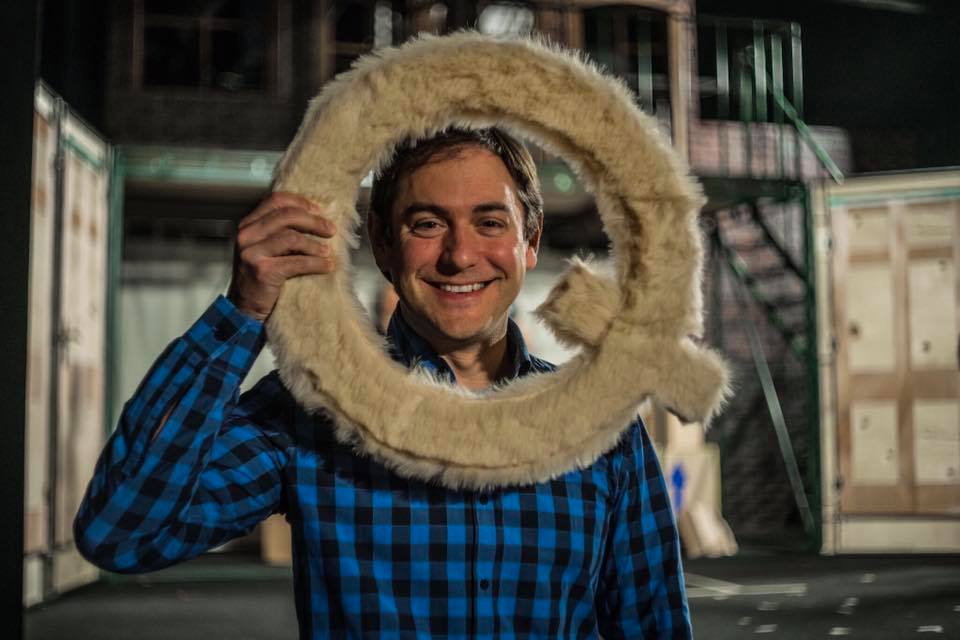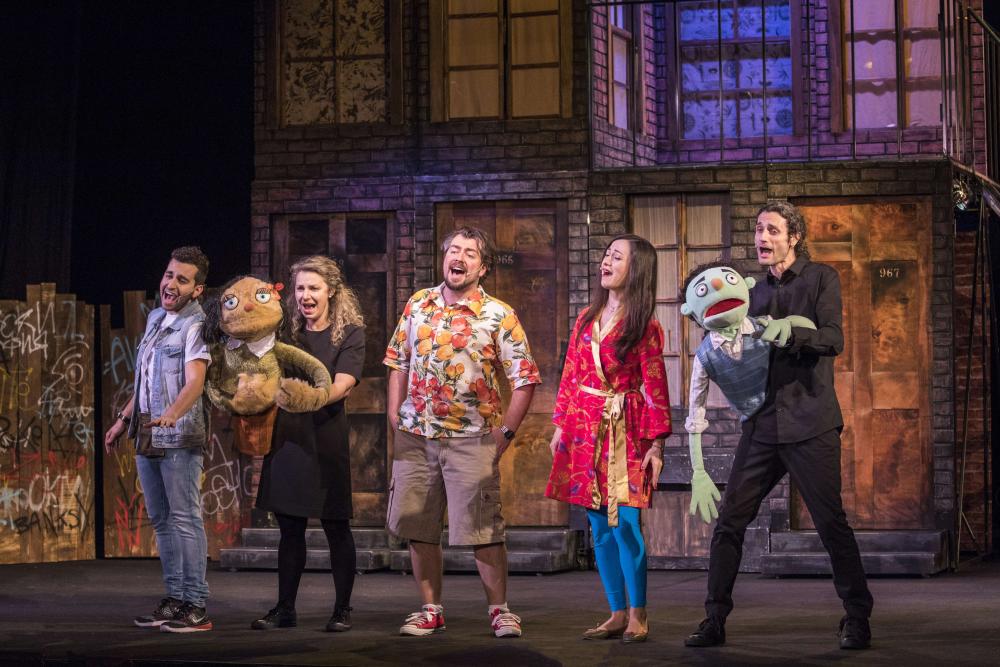 “What do I, as an American, have to offer to the Bulgarian theater community?”
“What do I, as an American, have to offer to the Bulgarian theater community?”
This question has consumed me during my time in Sofia working on “Avenue Q”. When I think of all the work that went into arranging my trip, and organizing the details so that I would be able to travel from New York to Sofia to direct an American Musical with the State Puppet Theater, I feel a great responsibility to answer this question and to make my time in Sofia as meaningful as possible.
“What do I, as an American, have to offer to the Bulgarian theater community?”
This question has kept me up at night and occupied my thoughts during the day. I have worked diligently to bring all my expertise, experience, and talent to Avenue Q in order to fulfill this pressing obligation. Yet, every time I thought I had an answer, I found came up short. Anytime I thought I had discovered something uniquely American to offer, I found that the group of theater artists around me was completely expert in whatever “new” skill I believed I had to teach. I learned that the theater community is an international family and we all share a deep familiarity because we all face the same challenges in trying to communicate our voices to audiences through the medium of live theater.
“So what do I, as an American, have to offer to the Bulgarian theater community?”
As soon as I realized that we are a single global community of artists, I stopped trying to teach and that’s when I suddenly began to learn. I found that it isn’t what I have to offer that is important, it’s what Bulgaria can offer to me. My question rearranged itself;
“What can I, as an American, learn from the Bulgarian theater community?”
To this question, there are many answers but one comes dominantly to the foreground. While I’ve been here I have seen a strength of community unlike any I’ve ever seen before. I have been invited to sit at the tables of friends in Sofia, and the experiences I have had during those evenings have been some of the greatest of my entire life. I have enjoyed homemade Bulgarian dinners in the homes of my colleagues and collaborators, every one made up of enough food to break the table! In America we have the occasional gargantuan social meal, but only on special holidays like Easter, Thanksgiving, or Christmas.
This gathering together of people to eat shopska salad, sarmi, and kufteta, to drink wine and rakia, and to have conversations lasting many hours full of laughter and love has opened my eyes onto a better way of living. There is a social life in Sofia that is intoxicating, and a kindness towards guests that has been profoundly moving to me.
It is fitting that I learned the power of social gatherings while working on Avenue Q because Avenue Q is, at its heart, a story about a community, a family of neighbors.
 During the rehearsals and the workshops I have been inspired by the community of theater artists working on the show and the social bonds that they have between them. The power of those strong friendships fed into the relationships happening onstage, in the community of the characters of Avenue Q.
During the rehearsals and the workshops I have been inspired by the community of theater artists working on the show and the social bonds that they have between them. The power of those strong friendships fed into the relationships happening onstage, in the community of the characters of Avenue Q.
These two families, the characters onstage and the artists offstage, have merged together so completely that I can no longer tell where one ends and the other begins. Are the characters onstage sharing a laugh between themselves, or is it the actors playing those characters sharing a laugh, or is it both? This deeply truthful feeling of “togetherness” is my favorite thing about our production of Avenue Q.
The important thing for me is that I didn’t bring this to Sofia, quite the reverse, it was Sofia that taught this to me. Perhaps “America for Bulgaria” should be renamed “Bulgaria for America” because I feel I am the one who has profited the most from the experience.
I will forever remember my time in Sofia and treasure what the Bulgarian Theater community has to taught to this American.
“Nazdrave!” and “Merci”.
West Hyler, theater director

